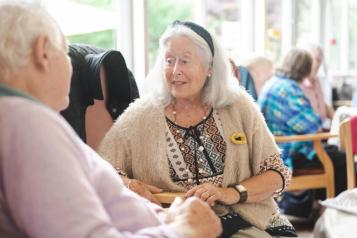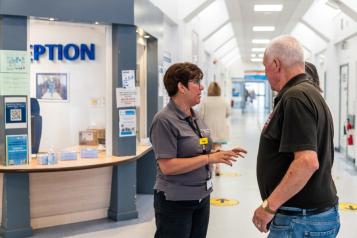Improving discussions about resuscitation for relatives in COVID-19
Good communication around care at the end-of-life is important for relatives and carers, and can help when coping with serious illness and bereavement.
The issue of communication about resuscitation is especially important during the pandemic. COVID-19 has disrupted the usual way healthcare professionals communicate with relatives and carers because of, untimely, unexpected deaths and restrictions to face-to-face visiting. Complaints about resuscitation communication are common. This is distressing for patients and families and costly for the NHS. Lessons can be learned by listening to the perspectives of relatives and carers around what went well and what could be improved.
This research aims to find out how discussions about resuscitation can be improved for the relatives/carers who had a discussion about resuscitation with a medical professional on behalf of a family member or relative during the COVID-19 pandemic.
Researchers from Newcastle University and the University of Manchester will undertake 45-60 telephone and Zoom interviews to understand the experiences of relatives/carers who discussed resuscitation/DNACPR with medical staff. The interview will allow the participant to discuss factors important to them.
The experiences of recently bereaved relatives/carers discussing resuscitation in the context of COVID-19 inspired this research question. Relatives/carers have also been involved in the development of the research design. National Institute for Health Research Policy Research Programme commissioned an advisory group of bereaved relatives/carers and bereavement specialists to help develop the interview questions, analytical framework and how they share their findings.
The findings from this research will be presented to DHSC to inform policy in this area, as well as the National Clinical Director for End-of-Life and the National End-of-Life Care Intelligence Network.
The research team would like to interview relatives who had discussions about resuscitation with health care providers. The questions will cover their experiences and views on the discussions and the general communication modes and issues surrounding access and timing. All information will be anonymised, and no individuals will be identified in any reports produced. The project has been approved by the University of Manchester Research Ethics Committee.
Please follow the link for a description of the study and what is involved in it for potential participants.
Contact:


